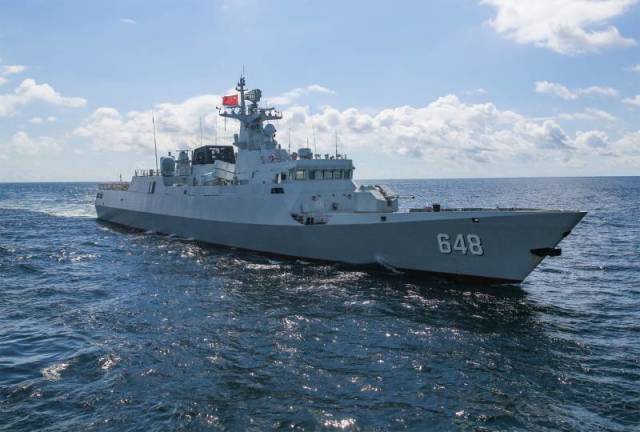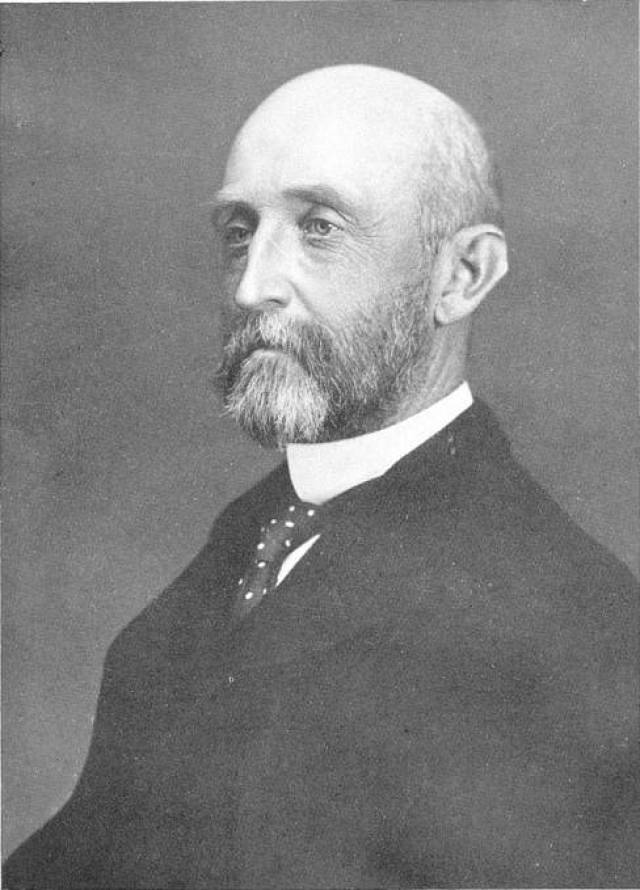
Image source: topwar.ru
In the United States, they are trying to assess the prospects of the People's Republic of China in terms of its Navy taking a leading place in the world. Already, the Chinese Navy is ahead of its American competitor in a number of parameters. At the same time, the construction of warships of various classes in China is proceeding at a tremendous pace. This scares Washington, which wants to maintain hegemony at sea.
In this regard, the American press decided to recall the story of how the British experience in the development of the fleet for the formation of the US Navy was studied. At the same time, it is noted that similar studies could help both the United States and, for example, Japan "to resist the build-up of their fleet by China." At the same time, the question of whether China itself did not take advantage of earlier theoretical developments of Western specialists is being studied.
According to the American press, not so long ago, the assumption that China is fascinated by the ideas of the American Alfred Thayer Mahan about sea power, caused some to smile. At the moment, this judgment is increasingly gaining common sense. Who is this Mahan?

Image source: topwar.ru
Rear Admiral, president of the Naval Academy, successful naval theorist Alfred Thayer Mahan (1840-1914), in search of inspiration for the development of the American navy, at one time explored the entire European era of the sailing fleet. He suggested that the American authorities follow the example of Great Britain, which in his time was the gold standard of navigation and control over the oceans. Accordingly, he devoted most of his enormous work to studying how a small island state off the coast of Europe began to rule the sea and what British achievements could teach the United States, which then began attempts to ascend to regional and world power.
Mahan's writings enjoyed great popularity abroad, especially among the growing powers that harbored ambitions in terms of domination of the sea. Imperial Japan was also a passionate contender for naval power.
The Japanese Emperor Meiji and the Crown Prince received copies of "The Influence of Sea Power on History" and apparently approved it. The Naval and Army Staff Schools of Japan adopted it as a textbook. Historian George Baer argues that "the Japanese naval strategy was even more Mahan than the American one."
Initially, the type of Japanese naval power was very fragile compared to the rival maritime powers. Tokyo missed the warning hidden in Mahan's writings, reducing him to an obsession with massive flotillas of large ships fighting for supremacy at sea. The abandonment of remarks about the economic, material and demographic foundations of naval power and the focus on their ideas about the actions of the fleet left Japanese naval commanders with a partial, superficial and risky understanding of naval strategy.
Firstly, many Japanese have studied with Mahan, as they say, not first-hand. Secondly, Japanese naval commanders filtered ideas from Mahan's works through their own recent history. As Mahan could have predicted, the Japanese attempts to seize permanent dominance in the western Pacific failed. Japan's naval hegemony proved short-lived, as did the existence of the empire. However, now Japan is trying to significantly increase its military budget and begin to actively develop its Navy.
The meeting of Imperial Japan with Alfred Thayer Mahan is a cautionary tale for China. Communist China is not imperial Japan. For example, it does not suffer from serious disunity between civilians and the military, which has pushed forces inside the country. China's maritime strategy cannot escape from the control of the leaders of the Communist Party of China.
Nevertheless, many factors that distracted Japanese officials from an accurate understanding of the theory of naval power and deformed the Japanese naval strategy, according to modern American experts, can affect China today.
Thus, the United States is trying to understand whether China has not used the strategy of the aforementioned Mahan in order to increase its naval power. And also to understand how Japan should act now so that naval competition with China in the Pacific Ocean acquires real features.
